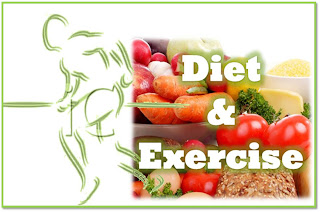
By Conner Hughes
Most researchers say that it takes about 20 minutes for our brains to realize that we are full. In accordance with this, most people who are trying to change their eating behavior are given advice to do the following - Put your utensils down in between bites, chew your food X amount of times, wait X seconds after you have swallowed to take the next bite, drink water in between each bite, stop half way through your meal and wait 10 minutes. These and other strategies like them are designed to increase the time it takes you to eat your food. The hypothesis is that taking more time will get you towards the "20 minutes mark" that it takes for your brain to register what you have eaten.
 For many people such strategies can be quite helpful. They ensure that you are more mindful when you eat and that you pay attention to the signals of your body. One of the most common is - "Chew your food X number of times". This is a good little habit to get yourself into, not so much because it will take you longer to eat your food, but because it will ensure that you eat foods that actually require chewing. Let me explain...
For many people such strategies can be quite helpful. They ensure that you are more mindful when you eat and that you pay attention to the signals of your body. One of the most common is - "Chew your food X number of times". This is a good little habit to get yourself into, not so much because it will take you longer to eat your food, but because it will ensure that you eat foods that actually require chewing. Let me explain... Food manufacturers know that the quicker that you eat, the more you eat. The more food that you eat, the more you buy, so getting you to eat quickly is of high priority for food designers. This means that they produce foods that are specifically designed to break down immediately in your mouth. Less chewing time means quicker consumption. Quicker consumption means more food consumed. You get the picture.
Food manufacturers know that the quicker that you eat, the more you eat. The more food that you eat, the more you buy, so getting you to eat quickly is of high priority for food designers. This means that they produce foods that are specifically designed to break down immediately in your mouth. Less chewing time means quicker consumption. Quicker consumption means more food consumed. You get the picture.They do this in a variety of ways from putting water into chicken which makes it softer and easier to chew, to adding fat, simply to make the food break down easier in your mouth, and even injecting marinade into meat so the connective tissue is destroyed making it almost "pre-chewed".
As you can imagine, processed foods also contain additives and chemicals that reduce the effort it takes to break them down and swallow. This means that you are often taking the next bite even before you have swallowed the first. So not only are the highly processed foods more calorie dense, but you are also eating more of them because they are designed to be eaten very fast. In most situations your brain will not register the fact that you have just eaten 1,000 calories in 5 minutes, so you continue to eat.
 The most important point here is that when you are choosing foods to eat, make sure that you choose foods that you actually have to chew. Foods that don't require chewing are designed that way, and almost guarantee that you will eat more. Foods that require chewing are usually healthier options and you will eat less because it takes you a little longer to consume them.
The most important point here is that when you are choosing foods to eat, make sure that you choose foods that you actually have to chew. Foods that don't require chewing are designed that way, and almost guarantee that you will eat more. Foods that require chewing are usually healthier options and you will eat less because it takes you a little longer to consume them. In the past we needed to chew a food around 25 times before we could swallow it. Now it may take you 2 or 3 quick munches for the food to be headed into your stomach. Stick to foods that you need to chew and you will magically see yourself eating a lot less.
In the past we needed to chew a food around 25 times before we could swallow it. Now it may take you 2 or 3 quick munches for the food to be headed into your stomach. Stick to foods that you need to chew and you will magically see yourself eating a lot less.All this chewing also gives you a fantastic side effect. Chewing enhances flavor! It's called savoring your food. When the food stays in our mouth longer our sense of smell really has a chance to kick in and provide an extra flavor boost. We all are aware of this on some level - every kid knows if they don't like the taste of something they should try and AVOID chewing and gulp the food as quickly as possible.
So slow down, chew and savor your food. Eat mindfully. Think about choosing foods that are less commercially processed and require a little more effort to chew. Your stomach will be able communicate fullness appropriately and at the same time your taste buds can be really satisfied.
Article Source: http://EzineArticles.com/2709738




 8:08 PM
8:08 PM











 Posted in
Posted in
No Response to "Chewing Your Food is Important For Weight Loss"
Post a Comment